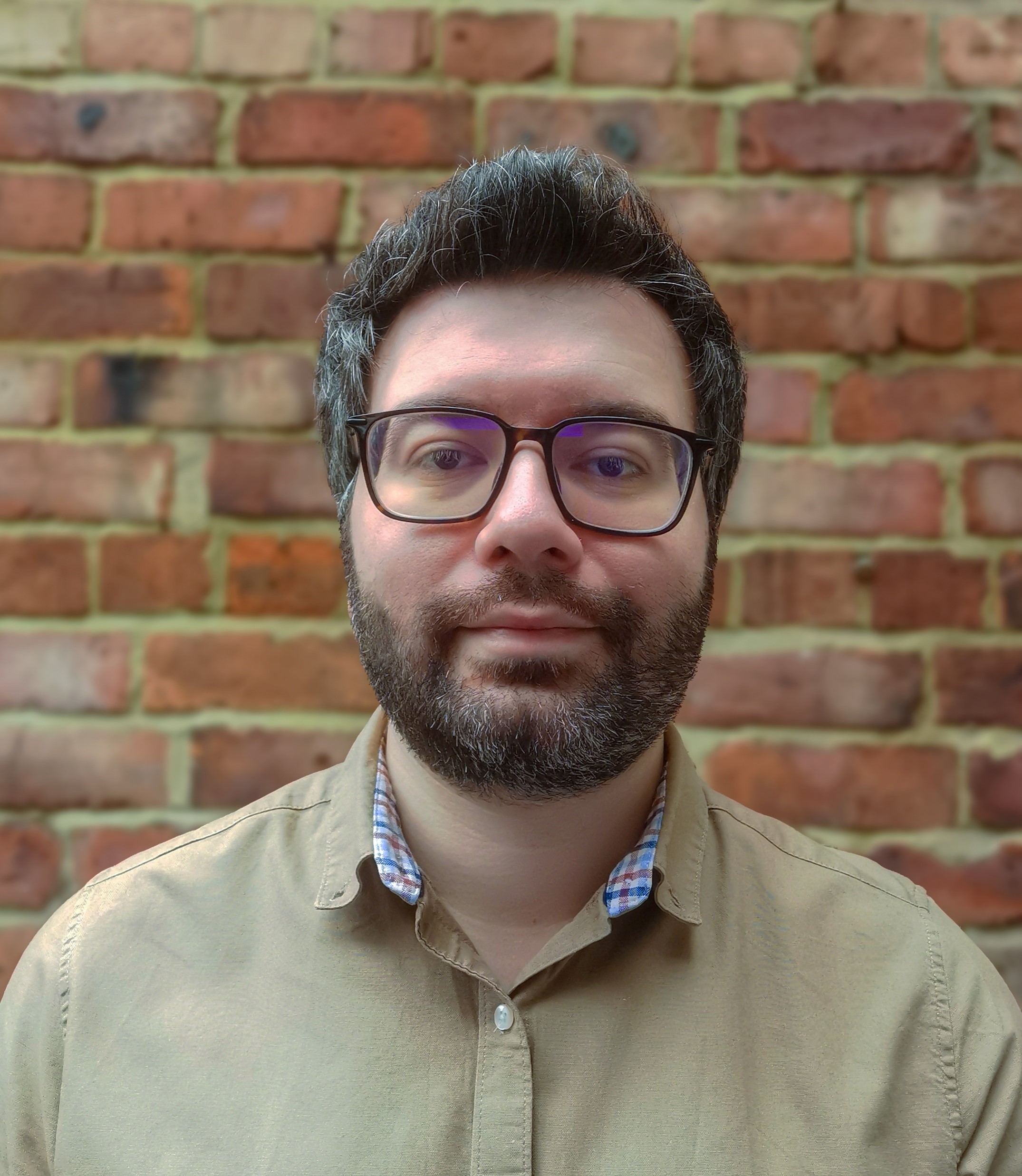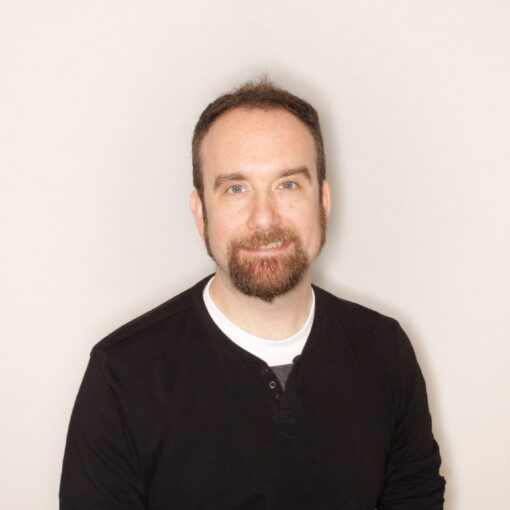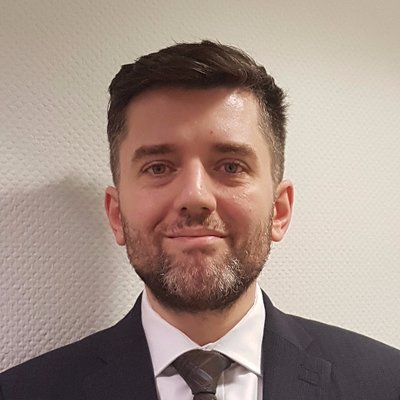PhD in Fibre and Polymer Technology
| Scientist | |
|---|---|
| Procter & Gamble (P&G) | |
Year entered into a non-academic position: 2022
Job highlight: I am a member of the Digital Innovation Team responsible for developing the next generation of Fabric and Home Care products
My research training set me up to… Proficiently multitask while employing critical, evidence-based reasoning to discover innovative solutions for complex challenges, and effectively communicate the outcomes to diverse, multi-disciplinary audiences.
Left academia after: After [1] years [4] months of postdoctoral work. I also need to specify that I changed to industry as a postdoc (full-time at P&G, without university connection, for 1 year). After my postdoc placement at P&G, I was hired as a Scientist in September, 2023.
What’s your background?
I did my PhD in Fibre and Polymer Technology at KTH Institute of Technology in Stockholm, where my research focused on understanding plasticization mechanism of starch-based thermoplastic through experimental and simulation approaches. Prior to this, I completed a Master’s degree in Chemical Engineering at Istanbul Technical University, specialising in molecular simulations to predict key polymer properties. After my PhD, I joined the EU BioUPGRADE project as a postdoc in the Glycoscience division at KTH, where I worked on enzymatic modifications of cellulose/hemicelluloses for direct applications.
Why did you move away from academia?
After spending five years in academia, I realised that the constant requirement to write proposals didn’t align with my long-term goals. During my time as a postdoc at KTH, I began freelancing as a computational chemist, and this experience helped me realise that academia wasn’t where I belonged. I was eager to gain hands-on experience and learn how my research and knowledge could be applied in an industrial setting for innovation. Additionally, I wanted to work collaboratively within a team, rather than working on individual projects.
Is there anything you miss about academia?
Although I still have freedom to pursue my own ideas, hypotheses, and approaches at P&G, it is slightly different. Moreover, I do miss the opportunity to travel for conferences, which I used to enjoy, as I often received travel grants during my academic career.
How did you get this job? Did you face any challenges when considering a move away from academia or applying for the role?
After deciding to leave academia, I reacted to a postdoc (based at the Procter & Gamble, Newcastle Innovation Centre) advert on Linkedln. Looking back, this role was a transition state in my career from academia to industry. As it was about to end, I began applying for similar industry roles while awaiting a potential offer from P&G. Fortunately, I received an offer, and I decided to stay with them because I believe there’s still much to learn at P&G.
Within these years, one of the challenges I faced was relocating from Stockholm, Sweden, to Newcastle upon Tyne, UK, as my niche field had not yet extended to the industry in Sweden.
What motivated you to/why did you choose the sector you transitioned into?
When considering a transition to industry, I aimed to join a large company with diverse business sectors that I could explore to find my career path rather than focusing on specific sector in mind. The postdoc position at P&G felt like the perfect fit for my background and future learning goals, given its multi-sector business nature.
Did you think you had the skills required for your current position before you started? Were you right?
Even though I was confident about my background in molecular simulations, I needed some clarification about whether I had all the skills to work in a company, or the business world. I was right about my uncertainties, and I needed to learn various skills, especially looking at the company’s perspective while presenting my ideas, approaches, and proposals. Despite the adjustments I needed to make, my background was a perfect fit for the position, and I continue to learn while working with principal/group/senior scientists in my niche field.
How did your PhD prepare you for your current job? For example, what were the transferable skills that you developed during your PhD that are most relevant to your current job?
My academic experience equipped me with valuable transferable skills that seamlessly translated into the business world easily.
These skills include meeting deadlines, problem-solving, effective time management, and strong organizational abilities, among others.
Did you have any preconceptions about your sector that proved to be wrong?
I initially expected fewer scientific discussions and collaborations with academia, but to my surprise, large companies, especially in the UK, is actively fostering partnerships with academic groups all around the world to engage in cutting-edge technology projects. I think that I have interacted with more academic groups in my current role at P&G than during my time in academia.
Can you describe a typical week in your job?
As a scientist in computational chemistry and modelling, my typical week may change depending on the time of the year and deadlines. I tend to reserve Mondays and Fridays for research and actionable tasks, prioritizing hands-on work over unnecessary meetings when possible. In mid-week, I typically engage in discussions with senior team members and fellow researchers, presenting my findings and deliberating on the next steps for our ongoing projects.
What is the workplace culture like? Please include comments on work-life balance, flexibility, remote working?
The workplace culture at P&G is a vibrant blend of innovation and collaboration. It is like the perfect symphony where diverse extraordinary people come together to help each other, elevate each other’s performance, and impact people’s lives with high quality products.
Regarding work-life balance, P&G values its’ employees’ well-being, and encourages /supports a healthy balance between professional commitments and personal life. It is common to see a seminar about this more or less every week. P&G provides all the flexibility needed for me as a digital employee to elevate my performance and upscale my potential. As I am working with diverse scientists in Europe and the US, flexibility and remote working are one of the key parameters at P&G for me.
Do people with a PhD frequently get hired in the company/sector?
Yes, they hire people with PhDs frequently. There are different career paths for PhD and non-PhD employees P&G also values soft skills a lot and they have a “grow within” culture, with >99% of P&G senior leaders promoted from within the organization.
What are your favourite parts of your job?
Firstly, I love working in the computational chemistry and modelling field after in my academic career. In addition, P&G is a fast-paced, dynamic, and highly collaborative environment, where I have the opportunity to learn something new every day.
What are your reflections on your career path?
I have been so far learning a lot about the sector (which is Fabric and Home Care), and I am on the technical leadership career path at P&G. I am looking forward to going on that path and seeing what I am going to learn next.
Do you have any advice for current graduate students and postdocs considering a career outside of academia?
Academia and industry are indubitably different. I would suggest the same as I did;
current graduates could find postdoc positions at a company where they can observe the differences.
The postdoc at P&G made me realize that I do not belong to academia (or at least not anymore at the time).
What are your reflections on your career path?
I have been so far learning a lot about the sector (which is Fabric and Home Care), and I am on the technical leadership career path at P&G. I am looking forward to going on that path and seeing what I am going to learn next.
Can you recommend any relevant resources, organisations or events that might help somebody new to the sector find out more about it?
I have stayed updated through LinkedIn, where I regularly review job postings and follow industry events. This approach has helped me focused on the specific skills I needed to pursue for the roles I was interested in.
 The Procter & Gamble Company (P&G) is a renowned American multinational consumer goods corporation with its headquarters in Cincinnati, Ohio. Established in 1837 by William Procter and James Gamble, the company specializes in a diverse array of personal health, consumer health, personal care, and hygiene products. Well-known major brands Ariel, Tide, Lenor, Gillette, Fairy, Head & Shoulders and Oral-B.
The Procter & Gamble Company (P&G) is a renowned American multinational consumer goods corporation with its headquarters in Cincinnati, Ohio. Established in 1837 by William Procter and James Gamble, the company specializes in a diverse array of personal health, consumer health, personal care, and hygiene products. Well-known major brands Ariel, Tide, Lenor, Gillette, Fairy, Head & Shoulders and Oral-B.
Procter & Gamble has five sector business units;
- Baby, Feminine, and Family Care
- Beauty
- Grooming
- Health Care
- Fabric and Home Care
Website: https://www.pg.co.uk/
Career: https://www.pgcareers.com/
Vacancies: https://www.pgcareers.com/global/en/search-results
For the Vacancies, I suggest looking for “Scientist” or “Postdoc Placement” roles. Growth areas are quite flexible since it is a multi-sector company. However, the hiring process is very competitive.
Hiring Process: https://www.pgcareers.com/global/en/hiring-process





